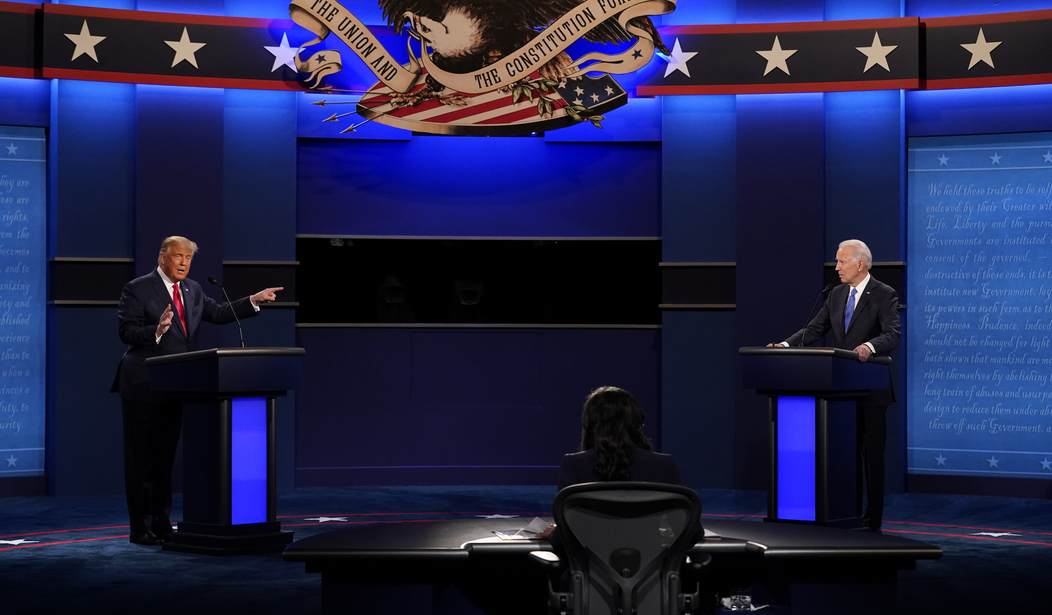The Republican National Committee announced on Thursday that it had voted unanimously to withdraw from the Commission on Presidential Debates, a supposedly nonpartisan group that organizes presidential and vice presidential debates before general elections. The independent claims of the CPD, however, came under renewed scrutiny after the way it handled the 2020 cycle debates and brushed off concerns about timing and procedures raised by the Trump campaign and RNC.
"Debates are an important part of the democratic process, and the RNC is committed to free and fair debates," said RNC Chairwoman Ronna McDaniel. "The Commission on Presidential Debates is biased and has refused to enact simple and commonsense reforms to help ensure fair debates including hosting debates before voting begins and selecting moderators who have never worked for candidates on the debate stage," she noted.
As a result of the RNC's Thursday vote, Republican candidates for President and Vice President will be required to sign a pledge that they will not participate in primary or general election debates that aren't RNC-approved.
As Townhall covered in January, McDaniel and the RNC sent a letter putting the Commission on notice for its "inaction" to address concerns raised by Republicans after the 2020 debates:
The RNC has a duty to ensure that its future presidential nominees have the opportunity to debate their opponents on a level playing field. So long as the CPD appears intent on stonewalling the meaningful reforms necessary to restore its credibility with the Republican Party as a fair and nonpartisan actor, the RNC will take every step to ensure that future Republican presidential nominees are given that opportunity elsewhere. Accordingly, the RNC will initiate the process of amending the Rules of the Republican Party at our upcoming Winter Meeting to prohibit future Republican nominees from participating in CPD-sponsored debates.
Recommended
The RNC highlighted several concerns, but the Commission either didn't take the RNC's warning seriously or simply didn't care. As a result, "the RNC voted to withdraw from the biased CPD, and we are going to find newer, better debate platforms to ensure that future nominees are not forced to go through the biased CPD in order to make their case to the American people," McDaniel said of Thursday's decision that made good on the RNC's January pledge.
It remains to be seen what the RNC's "freer and fairer" debates might look like outside of the CPD, or whether the Democrat nominees will participate in debates that aren't part of what has been the usual path to the White House every four years.
In any case, it makes sense for the RNC to withdraw from a process that's proven unfair to Republican candidates organized by a group that's becoming often indistinguishable from the rest of biased mainstream media. The fact that the CPD didn't even feign a serious look at the issues raised by the RNC made it clear that reforming the current system wasn't a workable option and going around existing institutions to force a change became the best course of action looking ahead to 2024.

























Join the conversation as a VIP Member